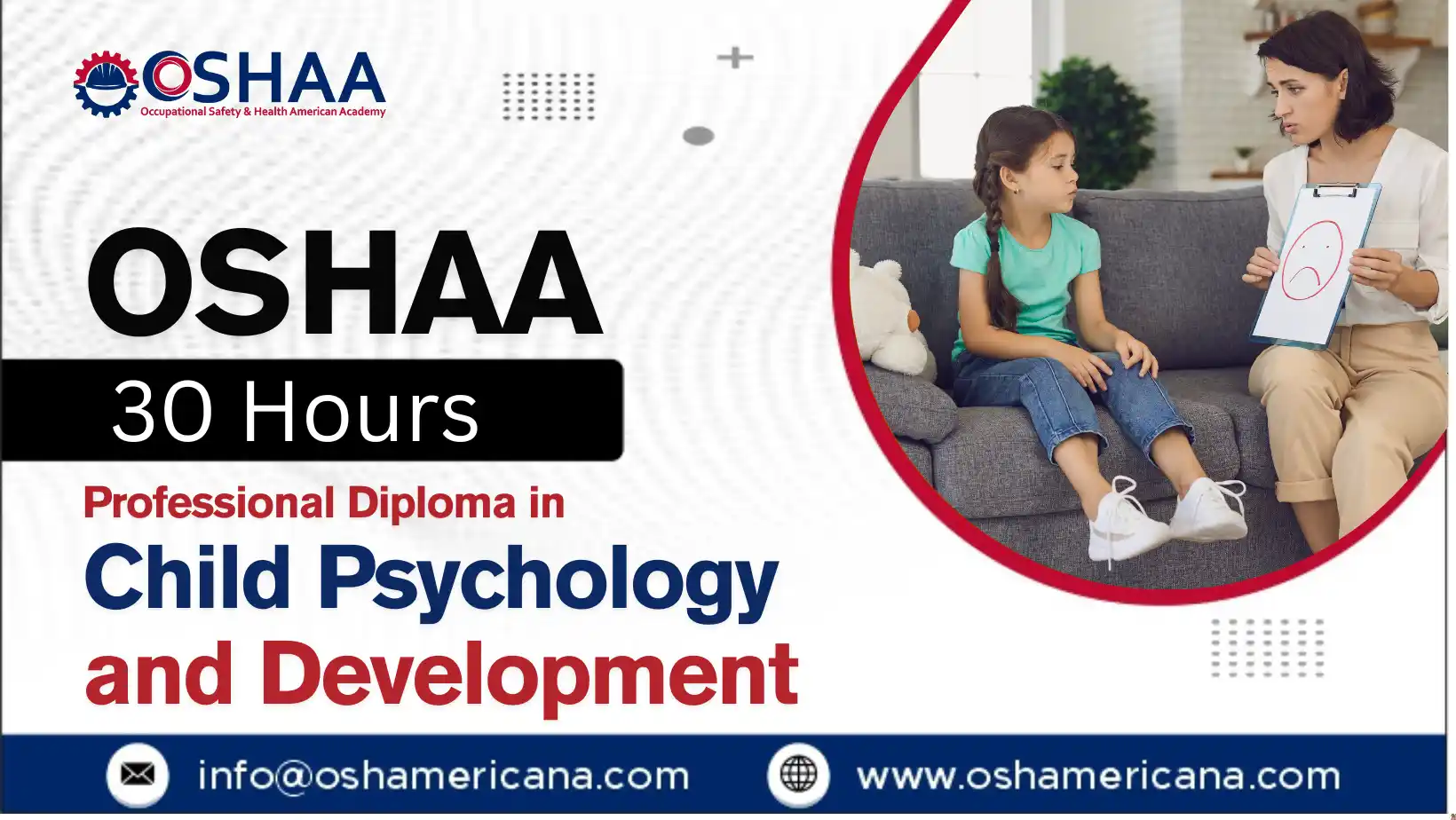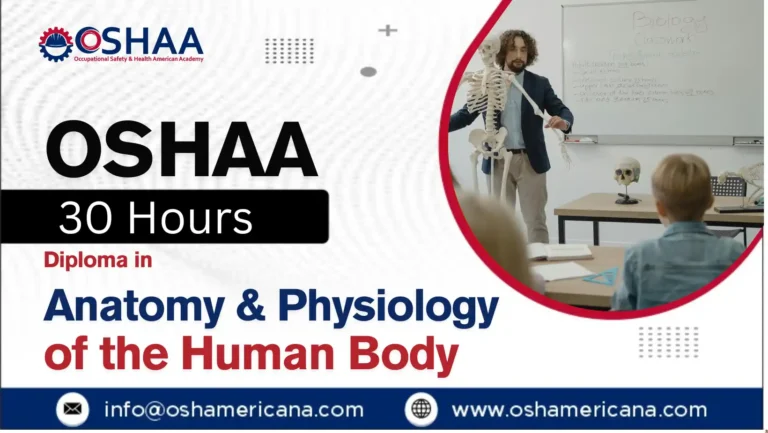Professional in Child Psychology and Development – Enhance Understanding and Support for Children
The OSHAA 30-Hours Diploma in Child Psychology and Development is a focused programme designed to provide a thorough understanding of children’s cognitive, emotional, and social growth from infancy through adolescence. This course equips participants with both theoretical knowledge and practical strategies to support healthy development and address challenges in various educational, clinical, and community settings.
The curriculum covers key topics such as developmental milestones, learning processes, emotional regulation, behavioural patterns, and the influence of family, school, and social environments on overall well-being. Participants gain insight into child psychology principles while learning evidence-based techniques for assessment, intervention, and early support. Real-world applications and structured learning modules enable learners to interpret children’s behaviours effectively and respond appropriately to their developmental needs.
This diploma also emphasises observation, communication, and developmental assessment skills, ensuring participants can identify concerns and implement supportive strategies ethically and professionally. Ideal for educators, counsellors, social workers, healthcare providers, and anyone working with children, this course prepares participants to make a meaningful impact. By the end of the programme, learners will have the confidence and expertise to foster environments that nurture children’s mental, emotional, and social growth..
OSHAA 30-Hours Diploma in Child Psychology and Development
Study Units
Learning Outcomes
Introduction to Child Psychology and Developmental Theories (3 Hours)
- Explain the key concepts, scope, and significance of child psychology.
- Compare and contrast major developmental theories and their applications.
- Recognise the stages of child growth and psychological development.
Cognitive Development from Infancy to Adolescence (3 Hours)
- Describe the stages of cognitive development and related milestones.
- Analyse how thinking, problem-solving, and learning abilities evolve in children.
- Apply developmental models to understand variations in cognitive growth.
Emotional and Social Development in Children (3 Hours)
- Identify emotional growth stages and socialisation processes in children.
- Examine the influence of relationships on emotional well-being.
- Recognise signs of emotional or social difficulties in various age groups.
Behavioural Patterns and Influencing Factors (3 Hours)
- Describe common behavioural patterns in childhood and adolescence.
- Analyse the impact of genetics, environment, and life experiences on behaviour.
- Identify strategies to address challenging behaviours constructively.
Language Acquisition and Communication Skills Development (3 Hours)
- Explain stages of language acquisition from early speech to advanced communication.
- Assess the role of interaction, play, and environment in language development.
- Recognise indicators of speech or communication delays.
Impact of Family, School, and Social Environments on Child Development (3 Hours)
- Analyse the role of family structure, parenting styles, and school environments in child development.
- Evaluate the effects of peer influence and community support systems.
- Identify ways to foster positive developmental outcomes through supportive environments.
Identifying Developmental Delays and Special Needs (4 Hours)
- Recognise signs of developmental delays in cognitive, emotional, or physical domains.
- Differentiate between various special needs conditions and their implications.
- Outline referral procedures and support pathways for children with special needs.
Early Intervention and Support Strategies (3 Hours)
- Explain the principles of early intervention in child development.
- Apply techniques to support children with developmental or behavioural challenges.
- Assess the effectiveness of targeted developmental support strategies.
Observation, Assessment, and Record-Keeping in Child Psychology (3 Hours)
- Demonstrate methods for observing and documenting child behaviour.
- Apply assessment tools to evaluate developmental progress.
- Maintain accurate and ethical records in line with professional standards.
Ethical and Professional Practices in Working with Children (2 Hours)
- Maintain professional boundaries and confidentiality in practice.
- Explain ethical responsibilities in child psychology and development work.
- Apply safeguarding and child protection principles.
• Builds a comprehensive understanding of child growth, cognitive processes, and behavioural development from infancy to adolescence.
• Equips participants with the ability to identify developmental milestones and recognise early signs of delays or special needs.
• Enhances practical skills in observation, assessment, and maintaining professional records for effective developmental monitoring.
• Strengthens knowledge of evidence-based strategies to support children’s emotional, social, and cognitive well-being.
• Improves capacity to create supportive environments in family, school, and community settings for optimal child development.
• Develops communication skills for engaging effectively with children, families, and multidisciplinary professionals.
• Provides insight into ethical responsibilities, safeguarding measures, and professional standards when working with children.
• Increases career readiness for roles in education, childcare, counselling, and child-focused support services.
• Aligns learning outcomes with modern research and practical approaches in child psychology, enhancing professional competence.
• Individuals seeking to develop a professional understanding of child growth, behaviour, and developmental processes.
• Early childhood educators, teaching assistants, and school staff aiming to enhance their ability to support children’s learning and well-being.
• Childcare providers, nursery practitioners, and caregivers who work directly with children in various settings.
• Professionals in healthcare, social work, or community services who wish to expand their expertise in child development.
• Counsellors, youth workers, and support staff involved in child and family welfare programmes.
• Those considering a career transition into education, childcare, or child-focused support roles.
• Individuals with a personal interest in understanding children’s cognitive, emotional, and social development to better support their growth.







